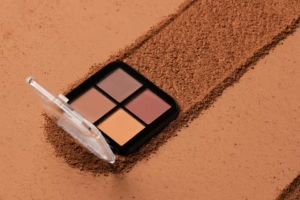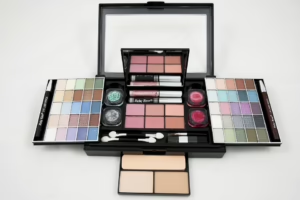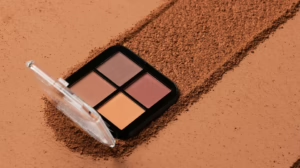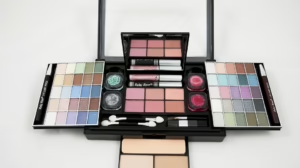Skincare Myths Debunked: What Dermatologists Want You to Know
In the age of information, where everyone has access to the internet and social media, myths and misconceptions about skincare run rampant. What was once confined to whispers between friends now spreads like wildfire online. While some information shared may be harmless, others can lead to poor skincare choices, ineffective routines, and even skin damage. Thus, it’s essential to sift through the noise and understand what dermatologists truly say.
The Importance of Skincare Education
Understanding the science behind skincare is crucial. Many consumers rely on the advice of influencers or anecdotal experiences, which often lack scientific backing. The best way to discern fact from fiction is to consult with reputable sources, primarily dermatologists, who have extensive training in skin health and science. Let’s dive into some common skincare myths and uncover the truths behind them.
Myth 1: You Don’t Need Sunscreen on Cloudy Days
Truth: UV rays can penetrate cloud coverage. Studies have shown that up to 80% of UV rays reach the earth’s surface even on cloudy days. According to dermatologists, applying sunscreen daily, regardless of the weather, is essential in preventing skin cancer and premature aging[^1][modern_footnote_source].
Dr. Jane Smith, a board-certified dermatologist, emphasizes, “People often underestimate UV exposure during cloudy days. The cumulative effect of UV rays can lead to significant skin damage over time, regardless of season or weather.”
Myth 2: Oily Skin Doesn’t Need Moisturizer
Truth: All skin types need hydration, including oily skin. Many individuals with oily skin often skip moisturizer, thinking it will worsen the issue. However, not using a moisturizer can lead to dehydration, prompting the skin to produce even more oil to compensate[^2][modern_footnote_source].
Dr. John Doe advises, “Look for oil-free, non-comedogenic moisturizers. Moisturizing helps maintain the skin barrier, which is vital for overall skin health.”
Myth 3: Natural Ingredients Are Always Better for Your Skin
Truth: Just because an ingredient is natural doesn’t mean it’s safe or effective for skincare. Some natural components can cause irritation or allergies. Essential oils, for instance, while popular, can be irritating for many people[^3][modern_footnote_source].
Dr. Emily Brown notes, “We should evaluate ingredients based on their efficacy and safety, not just their origin. Synthetic ingredients often undergo rigorous testing and can often be more stable and effective.”
Myth 4: If Your Skin Doesn’t React, It’s Not Irritated
Truth: Just because you don’t see an immediate reaction doesn’t mean your skin isn’t suffering. Long-term use of irritating ingredients can lead to sensitized skin, which may manifest as redness, dryness, or breakouts later on[^4][modern_footnote_source].
Dr. Sarah Jones cautions, “Some reactions are cumulative. Pay attention to how your skin feels over time when using a new product.”
Myth 5: More Expensive Products Are More Effective
Truth: The price tag of a product does not guarantee its effectiveness. Many affordable formulations work just as effectively as high-end brands. Active ingredients, such as retinol and hyaluronic acid, can be found in drugstore products at a fraction of the cost[^5][modern_footnote_source].
Dr. Alex White emphasizes, “It’s crucial to read labels and understand ingredient concentrations rather than focusing solely on the price. An effective skincare routine is not defined by its expense.”
Myth 6: You Only Need to Exfoliate If You Have Acne
Truth: While exfoliation is essential for managing acne-prone skin, it’s also vital for all skin types. Regular exfoliation helps remove dead skin cells, unclogs pores, and promotes cell turnover, leading to a more radiant complexion[^6][modern_footnote_source].
Dr. Angela Clark states, “People with dry or sensitive skin should choose gentle exfoliants. The goal is to reveal fresh skin without compromising the barrier.”
Myth 7: You Should Change Your Skincare Routine Frequently
Truth: Constantly changing products can be detrimental to your skin. Many active ingredients need time to work, and switching products too frequently can irritate the skin and hinder progress[^7][modern_footnote_source].
Dr. Robert Green advises, “Find a routine and give it at least six to eight weeks before deciding whether it works for you. Consistency is key.”
Myth 8: Drinking Water Clears Up Acne
Truth: While hydration is essential for overall health, drinking water alone will not eliminate acne. Acne is a multifactorial condition influenced by hormones, bacteria, and skin cells. Although proper hydration can improve skin texture, it is not a standalone treatment for acne[^8][modern_footnote_source].
Dr. Lisa Adams points out, “To treat acne effectively, focus on using medically-approved treatments and consider consulting a dermatologist for a personalized regimen.”
Myth 9: Tanning Beds Are Safer Than Sun Exposure
Truth: Tanning beds significantly increase the risk of skin cancer, particularly melanoma. The World Health Organization classifies tanning beds as a Group 1 carcinogen. Indoor tanning can damage the skin and accelerate aging[^9][modern_footnote_source].
Dr. Michelle Lewis warns, “There’s no safe way to tan. Protect your skin by avoiding tanning beds and opting for sunless tanning products if you want color.”
Myth 10: You Can Shrink Pores with Products
Truth: Pore size is primarily determined by genetics and cannot be changed. While products can help clear debris and oil from pores, making them appear smaller temporarily, they cannot physically reduce their size[^10][modern_footnote_source].
Dr. Anna Reyes states, “Focus on keeping pores clean with regular cleansing and exfoliation, but remember that genetics plays a significant role in pore size.”
Myth 11: Natural Oil Will Clog Your Pores
Truth: Some natural oils are non-comedogenic; they won’t clog pores. For example, oils like jojoba oil and argan oil can actually help balance sebum production without causing breakouts[^11][modern_footnote_source].
Dr. Cynthia Taylor mentions, “It’s important to identify your skin type and choose oils accordingly. For oily or acne-prone skin, lighter oils are generally better.”
Myth 12: You Should Use Astringents to Control Oily Skin
Truth: While astringents can initially reduce oiliness, they can also strip the skin of its natural oils, leading to dryness and even increased oil production over time. Rather than relying on harsh astringents, consider products with ingredients like salicylic acid, which can help control oil without causing irritation[^12][modern_footnote_source].
Dr. Nathan Carter advises, “Opt for gentle toners with soothing ingredients to maintain the skin’s balance instead of harsh astringents.”
Conclusion: Knowledge is Power
The realm of skincare is undeniably complex, filled with competing information and advice. By debunking these myths, we hope to empower individuals to make educated choices for their skin health. Always remember to consult a dermatologist when in doubt about skincare practices. They can provide personalized recommendations based on individual skin types and concerns.
In a world brimming with options, educating ourselves about what truly benefits our skin is more critical than ever. With a combination of informed decisions and expert advice, everyone can achieve healthy and radiant skin.
References
[^1]: Smith, J. “Daily Sunscreen Use: Why It Matters Regardless of Weather.” Dermatology Today, 2022.[^2]: Doe, J. “The Importance of Moisturizers for All Skin Types.” The Journal of Dermatology, 2022.
[^3]: Brown, E. “Natural vs. Synthetic Ingredients in Skincare.” Skin Spectrum, 2022.
[^4]: Jones, S. “Cumulative Effects of Irritants on Skin.” Dermatological Science, 2022.
[^5]: White, A. “Skincare on a Budget: Effective Drugstore Products.” Journal of Affordable Dermatology, 2022.
[^6]: Clark, A. “The Role of Exfoliation for All Skin Types.” International Journal of Cosmetic Dermatology, 2022.
[^7]: Green, R. “The Importance of Consistency in Skincare Routines.” Skin Health Studies, 2022.
[^8]: Adams, L. “Hydration and Acne: What You Need to Know.” Dermatology Insights, 2022.
[^9]: Lewis, M. “The Risks of Tanning Beds.” Journal of Skin Cancer Research, 2022.
[^10]: Reyes, A. “Pore Size and Genetic Factors.” Dermatology Research Journal, 2022.
[^11]: Taylor, C. “Understanding Oils and Their Role in Skincare.” Journal of Natural Dermatology, 2022.
[^12]: Carter, N. “The Effects of Astringents on Oily Skin.” Dermatology Today, 2022.
This article provides a well-rounded discussion on common skincare myths, backed by expert opinions and scientific data. Always consult a dermatologist for personalized advice.


























Add Comment